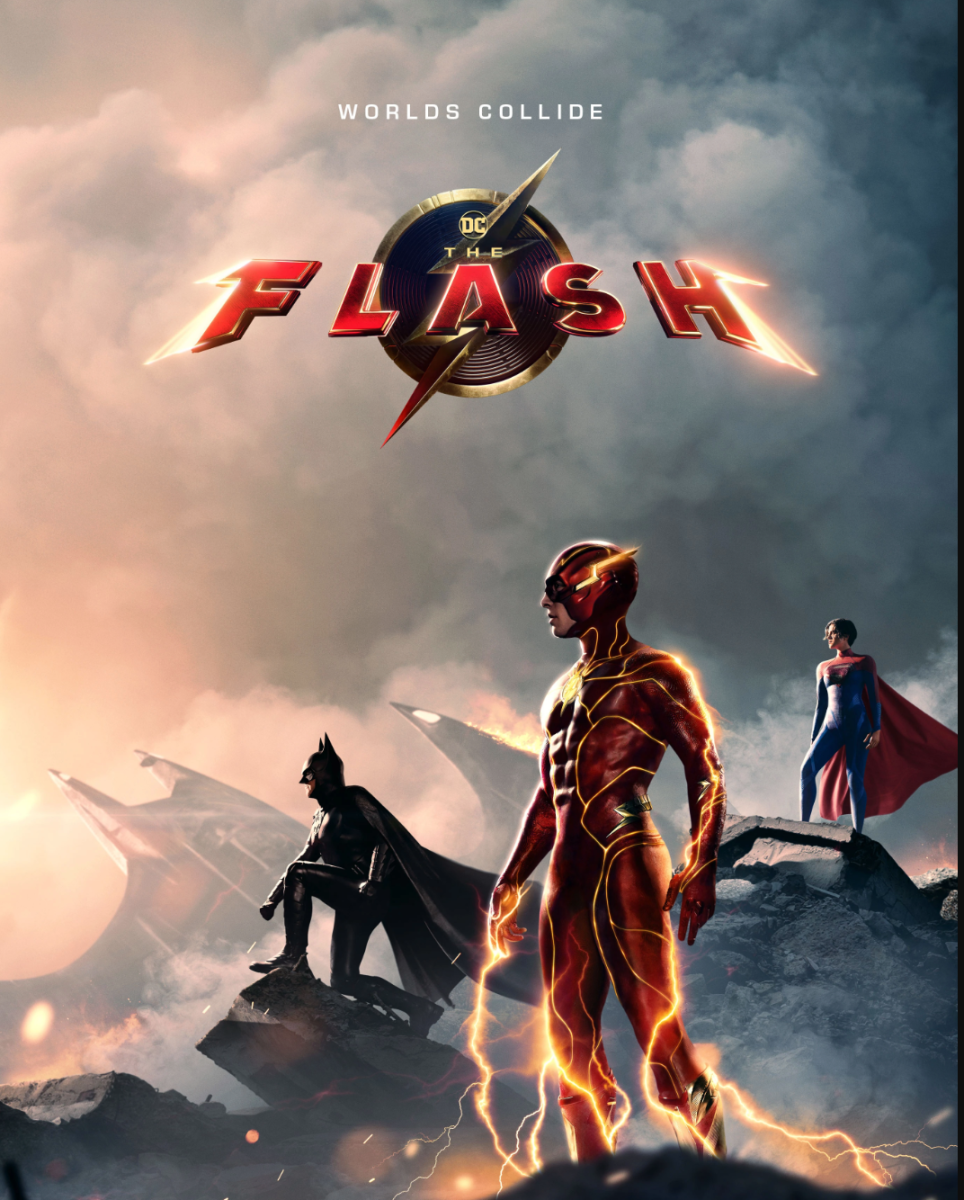Across silly blogs and chaotic comment threads alike, conversations about superhero movies tend to be exhausting. Like ubiquitous buzzwords in political conversations, I’ve noticed a handful of overused talking points in debates about superhero movies, such as: “They’re made for fun, not for earning Oscars,” “This movie exploits nostalgic cameos” and “The multiverse topic is getting old.”
“The Flash” (2023) could easily fit into the context of those funny, little sentences, just like every Marvel or DC movie could. Even so, I believe that this is a great superhero movie and a decent movie overall. People like making that genre distinction, and, unfortunately, so do I, but that makes the tiresome talking points irrelevant, for this is just a superhero movie, not a political statement.
But then there is Ezra Miller, who plays the film’s protagonist, Barry Allen. I agree with the loud majority that the actor’s recent legal trouble, which includes burglary charges and harassment allegations, is serious and condemnable. They should not be cast in the future. However, while some public outbursts and concerns predated production, the bulk of Miller’s more serious controversies came after the filming of this movie.
If you’re someone who does not want to watch because of Miller, that’s your decision, but my piece is this: You can more easily justify not listening to the music of a problematic artist, whose music is put together by some 10 people. More than 100 people are listed in the credits of “The Flash,” and those credits only list the heads of multiple production departments. It’s safe to say that most people don’t stick to not listening to the artist.
If you think the superhero movie market is oversaturated, then you also think that the origin stories for said heroes desperately struggle to break new ground. The multiverse aspect of this film allows for all the major necessities of an origin story — such as character development — to be touched on in an unique light. Without revealing too much, an older Barry must mentor and contain a younger and less mature version of himself, and their interactions over the course of the movie make the hero’s introspection come alive in dialogue that is, for the most part, natural.
The younger Barry is the comedic relief of this movie and can be too much at times, but I still found his quips funnier than those in recent live-action Marvel movies. This Barry still grows as a real character, even if he begins as slightly cartoonish. Along with maturing into a responsible hero, a significant part of his growth involves his older self teaching him how to use his powers. When you have a superhero whose shtick is moving at the speed of sound, you need to set ground rules for why he can’t easily resolve most emergencies in under 30 seconds. The writers followed these rules, which of course are not completely infallible, but they hit enough consistent notes to build tense stakes.
I don’t like the idea of giving them flowers, but Ezra Miller really does bring a great performance to this movie. Barry’s interactions with his mother (Maribel Verdú) and father (Ron Livingston) are filled with genuine-feeling emotion early and often bring tears to the right viewer’s eyes. Michael Keaton’s first time in the Batsuit since 1997 is also suave enough to satisfy your dad.
The two biggest complaints I have seen about this movie revolve around computer generated images (CGI) and the plot. The CGI critiques are radically overblown. Yes, there are visual choices involved with the time-travel sequences that look hilarious, but they don’t shatter the idea that maybe super-powered humans exist. Besides that, I thought the visual effects used for the Flash’s movement were delightful to watch, even if that delight ranges from awe to laughs.
Some of Supergirl (Sasha Calle)’s movements are awkward in the way Henry Cavill’s were as Superman in previous DC movies, but I think that Calle’s performance goes way beyond making those scenes worth it. Her screen time is limited, but the small ways that Supergirl carries herself and the explosive ways she expresses emotion combine to make her feel like the rawest character in the movie.
A staple of DC movies is jarring editing, which definitely afflicts “The Flash.” Quick cuts between scenes congeal the plot in a way that slightly takes away from its momentum. This is in part due to this movie having cycled through seven potential directors between pre-production and filming. While directors are not in any way independently tasked with splicing a film, the fact that multiple creative visions were involved is why the final cut feels about only nine-tenths baked. Despite this, the story itself is more than coherent.
In general, this movie went through production hell, but you can read about that elsewhere. Between that and DC’s track record of mediocre movies, I had little hope while walking into the theater. That’s why I found myself smiling for a continuous 30 minutes during the third act when I had finally let my guard down and realized, despite all doubts, that DC made a good movie.
The negative reviews I’ve read online are often so ridiculously extreme that I am convinced Marvel and Disney are puppeteering Rotten Tomatoes like Elon Musk does Twitter. Obviously, some of the harsh reviews are related to Miller, and that is more than understandable, as long as those feelings are related to their controversies.
I can’t let myself get too involved in the virtual gladiator battles that are the endless fights within Instagram comment sections. So instead, I’m voicing my opinion here that “The Flash” is a superhero movie that will at least intrigue and energize you, which is rare enough these days.











